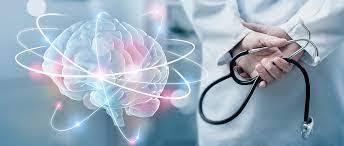The nervous system is a complex and vulnerable part of the human body. Neurology is a field of medicine that deals with the diagnosis and treatment of ailments associated with the nervous system. Doctors who specialize in neurology are known as neurologists. A neurologist studies, diagnoses, and treats neurological diseases, injuries, and disorders. The central nervous system and the peripheral nervous system are the two parts that make up the human nervous system. Nervous system disorders, illnesses, and injuries are treated by neurologists.
Education and training
In India, training to become a neurologist starts by completing an MBBS (Bachelor of Medicine and Bachelor of Surgery) degree. Candidates must then pursue an MD (Doctor of Medicine) Medicine / DNB (Diplomate of National Board) course. After being awarded a Post-Graduate degree, candidates can specialize in Neurology.
Subjects of specialization
Neurologists may choose to pursue additional education in one or more subspecialties due to the complexity of the nervous system. Neurologists with specializations usually complete an internship before taking up the formal practice. The common neurology specializations include:
- Neuromuscular medicine
- Neuro-oncology
- Auto disorders
- Child neurology
- Epilepsy
- Headache medicine
- Neurocritical care
- Geriatric neurology
- Vascular (stroke) care
- Intervention neuroradiology
Function
For patients with neurological disorders requiring frequent medical attention, a neurology doctor is the most appropriate source of care. Neurologists commonly serve as consultants to general practitioners for treating strokes, concussions, and headaches. Neurologists do not perform the surgery themselves, instead referring patients requiring surgical intervention to neurosurgeons or other specialist surgeons. For surgery, a neurologist monitors and supervises the recovery process.
What types of conditions do neurologists treat?
Neurologists treat disorders of the nervous system, both central and peripheral. These include the peripheral nerves, spinal cord, autonomic nervous system, brain, cranial nerves, nerve roots, and neuromuscular junctions.
The nervous system is often affected by the following disorders:
- Epilepsy: A neurological condition characterized by an abnormal electrical activity within the brain. A person experiences random seizures and loss of consciousness frequently.
- Alzheimer’s disease (and other forms of dementia): A disease in which a person experiences progressive mental decline due to generalized brain degeneration.
- Stroke (and other cerebrovascular illnesses): A stroke occurs when a blocked or ruptured blood vessel prevents oxygen and nutrients from reaching the brain.
- Headaches (including migraines): Intense, recurrent headaches accompanied by nausea and blurred vision.
- Multiple Sclerosis: An autoimmune disorder where nerve cells in the brain and spinal cord are damaged. This condition is characterized by impaired speech, muscle weakness, numbness, blurry vision, and extreme fatigue.
- Parkinson’s disease: A progressive neurological condition characterized by tremor, muscle rigidity, and sluggish movements. This condition is characterized by dopamine deficiency and degeneration of the brain’s basal ganglia.
- Tumors of the brain: Tumors are an abnormal growth of brain cells that interfere with cognitive abilities.
- Brain trauma (including other neurological injuries): An injury to the brain caused by an external force. Sometimes, this may result in alterations in consciousness and long-lasting or temporary impairments of physical, cognitive, and psychological functioning.
- Tourette’s syndrome: A neurological condition characterized by involuntary vocalizations and tics and the need to exclaim profanities compulsively.
- ALS (Lou Gehrig’s disease): An incurable disease afflicting the central nervous system caused by progressive loss of motor neurons causing muscle weakness and paralysis.
Diseases
Neurologists treat diseases affecting the nervous system, such as:
- Bacterial, viral, and fungal infections
- Malignant and benign cancers
Age increases the probability of developing neurological conditions and illnesses. Neurological disorders, and injuries to the nervous system, can also occur. Each year, more than 60 million people suffer traumatic brain injuries worldwide. When neurological disorders go untreated, they may prove life-threatening. It is vital to identify the signs of neurologic disease on time and seek treatment immediately.
Procedures
Here are the things you can expect from a neurologist if your physician refers you to one. Your neurologist will conduct a physical and neurological examination during your first appointment. The neurological examination helps assess sensory perception, muscular strength, coordination, and reflexes. The nervous system is complex, so you may have to undergo further testing.
Tests of the nervous system
- Lumbar puncture: Your neurologist will only recommend this if they believe that your spinal fluid might contain information about your symptoms. This procedure necessitates the numbing and sterilization of the area. A needle is inserted into the lower spinal column to obtain a sample of spinal fluid.
- EEG (Electroencephalogram): EEG measures the electrical activity of the brain by placing electrodes on the scalp.
- EMG/NCS (Electromyography and Nerve Conduction Studies): Nerves are examined by placing electrodes on the skin and inserting fine needles into the muscles to measure their function.
MRI, CT, and PET scanning are other tests. Other diagnostic methods are sleep studies and angiography. Contact your primary healthcare physician if you experience any neurological disorder-related symptoms, and ask to see a neurology doctor.

